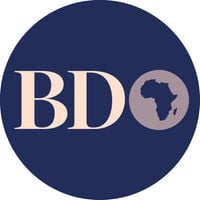
National Treasury Cabinet Secretary Ukur Yatani. FILE PHOTO | NMG
Summary
- Rich countries have been printing trillions of dollars to support businesses and give residents under lockdown stimulus cheques, but poorer countries have been wary of similar moves on fears that their currencies will depreciate.
- Negotiations are ongoing over whether countries can use part of the SDR reallocation to pay interest on their international bonds, which would allow them to protect their fiscal positions without defaulting.
Kenya has joined calls for an enhanced International Monetary Fund (IMF) bailout for poor countries that would see the multilateral lender increase special drawing rights (SDRs) limits that would ease the balance of payments for Covid-19 hit economies.
Rich countries have been printing trillions of dollars to support businesses and give residents under lockdown stimulus cheques, but poorer countries have been wary of similar moves on fears that their currencies will depreciate.
However, the Bretton Woods institution allows countries to settle their trade dues with other nations using the SDR-denominated instruments, therefore, increasing the limits will allow poor countries to more settle external payments without severely impairing their forex reserves.
Negotiations are ongoing over whether countries can use part of the SDR reallocation to pay interest on their international bonds, which would allow them to protect their fiscal positions without defaulting.
“We propose the enhancement of the limits of access to IMF facilities through reallocation of existing SDRs and allocating new SDRs, including strengthening the quick disbursement of the IMF through Rapid Credit Facility (RCF) and (Rapid Financing Instrument (RFI) and short-term liquidity lines,” said Treasury Cabinet secretary Ukur Yatani during a conference of African finance, planning and development ministers on Monday.
Last year, IMF managing director Kristalina Georgieva had proposed the enhancement of the SDR allocation that could provide hundreds of billions of dollars in urgently needed foreign exchange reserves for all of the IMF’s 189 members.
The move was, however, opposed by the Donald Trump administration in the US, which said under the current framework that allocated SDR according to the size of member economies rich countries would get 70 per cent of the printed money, which they did not need.
Only three per cent would go to poor countries.
America said it would be better for advanced economies to contribute to other IMF facilities to help poorer countries, including loans and grants through the Catastrophe Containment and Relief Trust, and the Poverty Reduction and Growth Trust.
African ministers are pushing the move under the new President Joe Biden administration but it is unlikely that Washington, the IMF’s dominant shareholder, will change its stance.
The US concerns surround the defence of the dollar as the world reserve currency since the IMF’s official unit of exchange-SDRs are based on dollars, euro, yen, sterling and yuan.
Printing them would challenge the dominance of the dollar.
The IMF last approved a $250-billion new allocation of SDRs in 2009, boosting liquidity for cash-strapped countries during the last financial crisis.


No comments:
Post a Comment